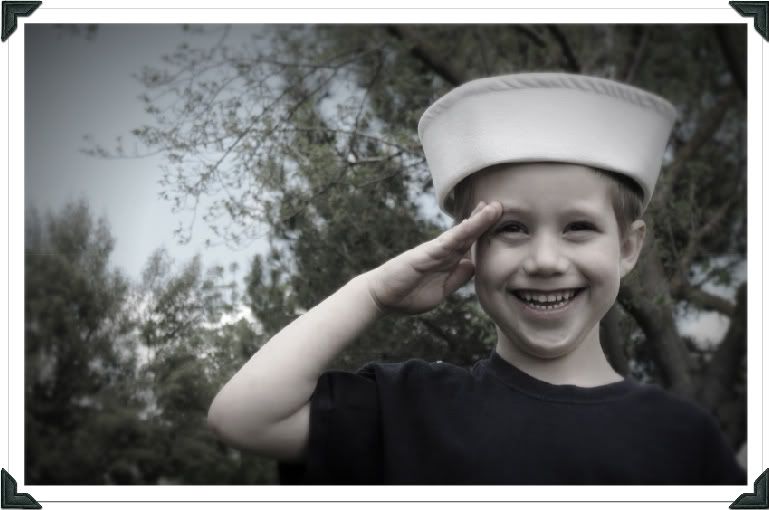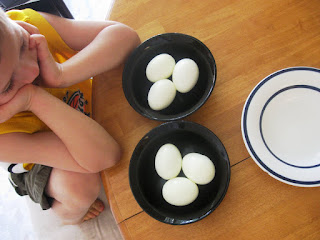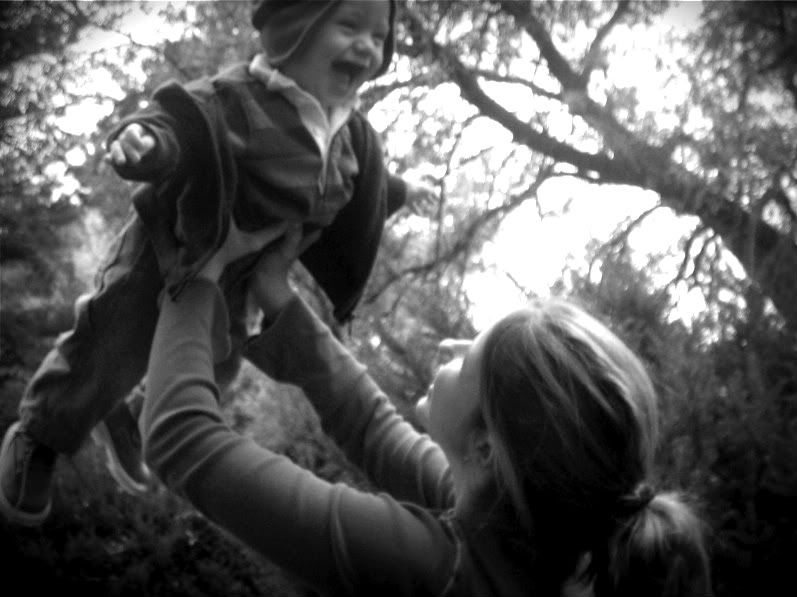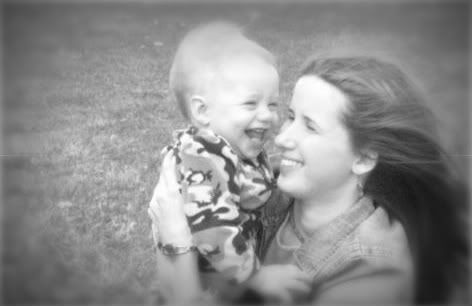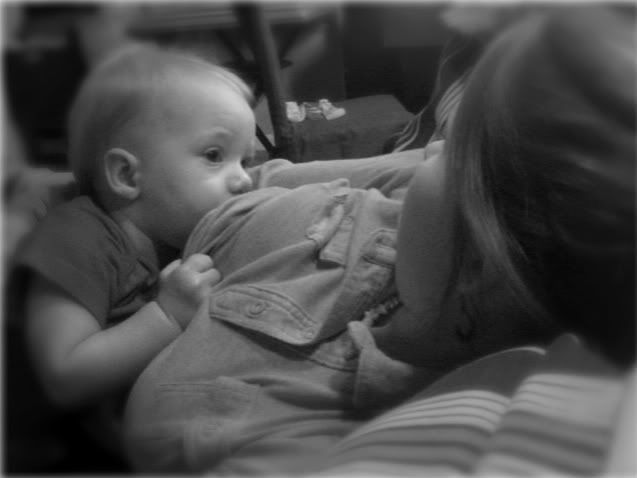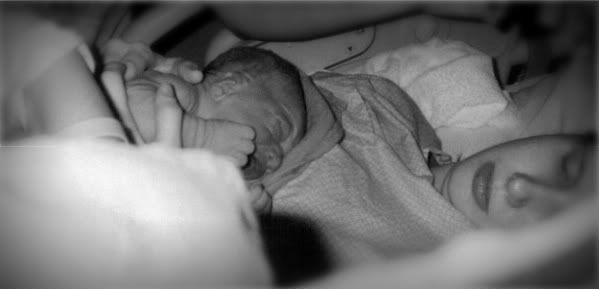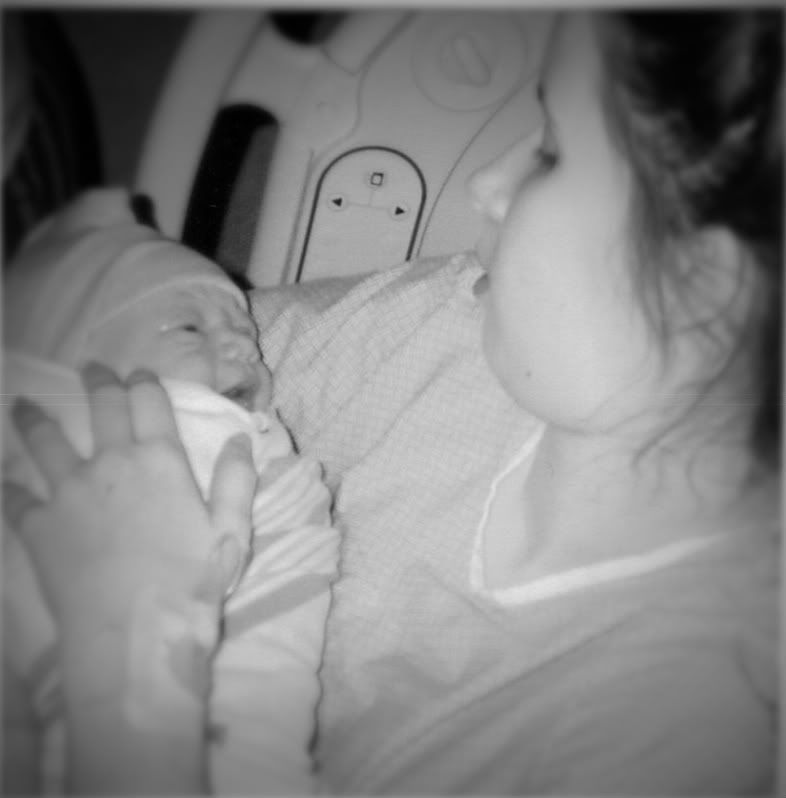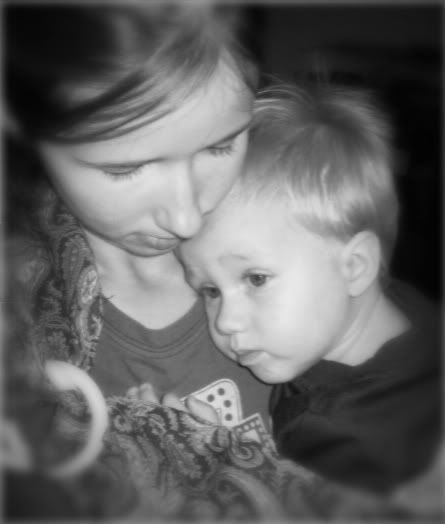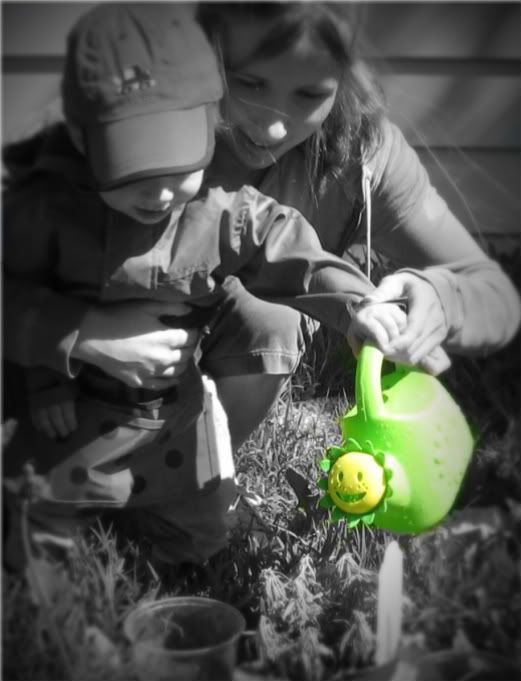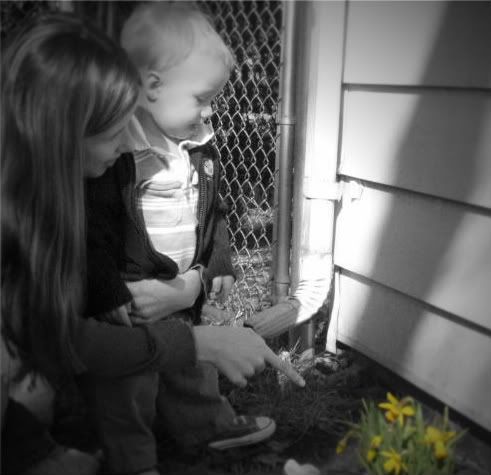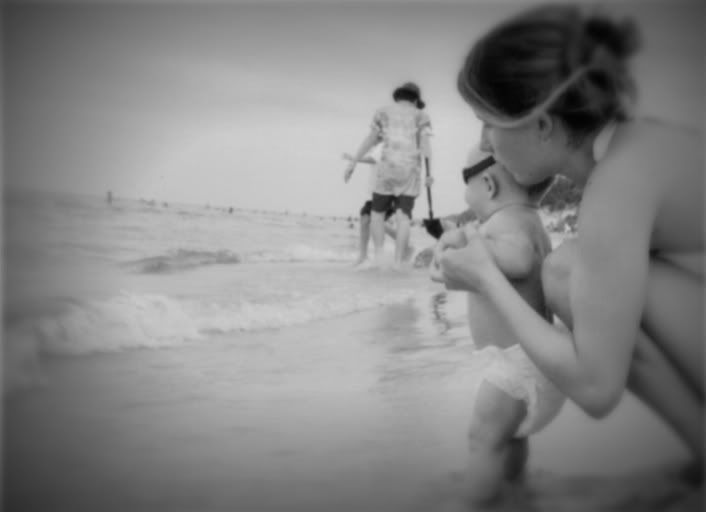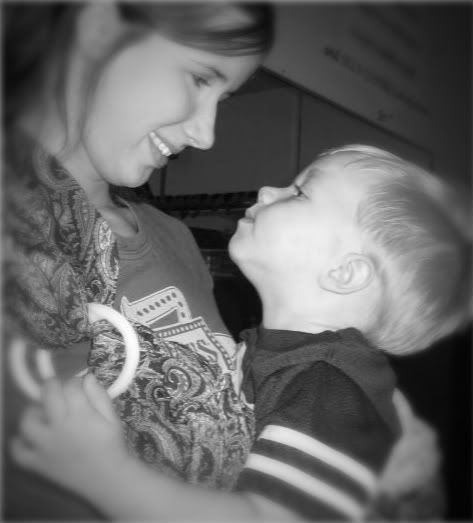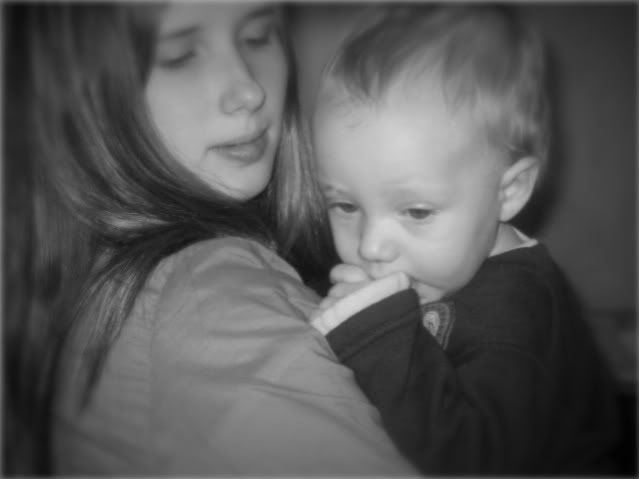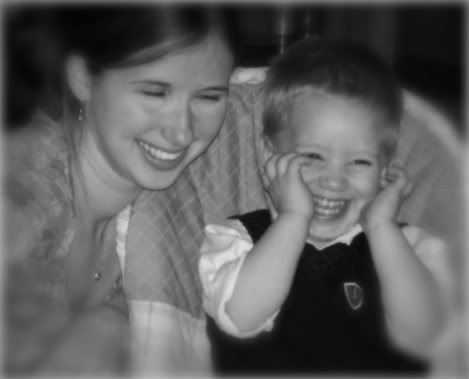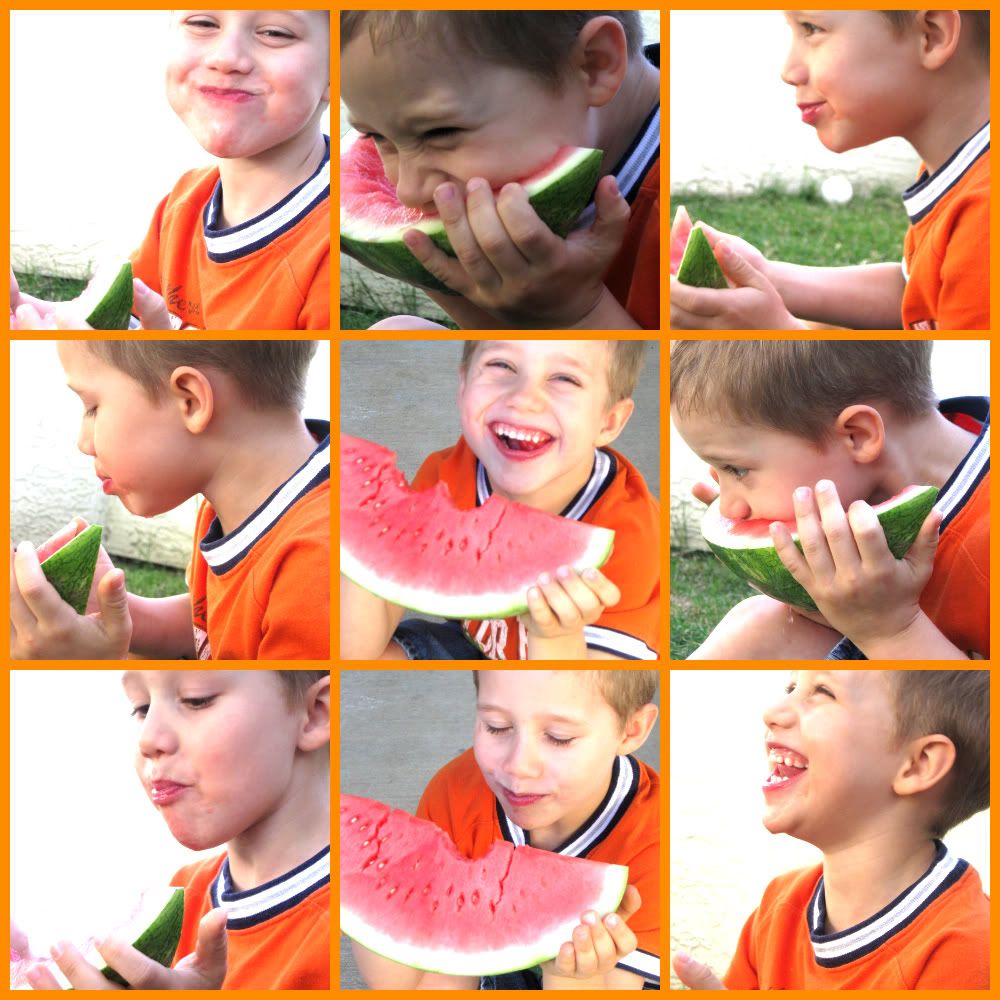cal·cu·la·tor [kal-kyuh-ley-ter]
–noun
1. a small electronic or mechanical device that performs calculations, requiring manual action for each individual operation.
Hunter has a new toy.
I never imagined it would go so well, this long-awaited introduction to the mechanical computing machine.
Glenn Doman, in the same way he recommends introducing goggles to the swimming child in his book on swimming, says to give your little mathematician a good, scientific calculator later on in your program and see what discoveries he makes with it.
The
point, of course, isn't to abandon mental arithmetic by any means. I
definitely don't condon the whole idea of spending the first five to six years of formal education
just teaching a child addition, subtraction, multiplication, and division, and then spending the last years of their formal education telling them that they don't really need to be able to do that so just use a calculator.
The key word here is, making discoveries. Not crutch or mental laziness.
So, how has Hunter made use of this little machine?
Well, first of all, he thinks it's a toy. A game, if you will.
I
did not tell him this. In fact, unlike so many other things, I didn't even make a big fanfare about it, just left it down on his math shelf with the
intention of introducing him to it and making a big fanfare out of it later.
But he got a hold of it before I could, and has been carrying it around
all day (think convenience store, to friend's house, to the exchange [department store], even to T-ball pictures).
His caculations mostly consist of adding together two different three-digit numbers (i.e. 728+728). He has been showing it off to pretty much everyone he comes in contact with, telling them "It's
my calculator". And I can't tell you how many times he has brought it to me showing me what he has just mechanically computed.
I can certainly see the potential. Think place value, seeing the way different numbers behave and how they come together and the different ways you can manipulate them. And the buttons. Oh, all those wonderful little function buttons. To be completely honest
I don't even remember what half those buttons on that thing mean. But I guess that's the beauty of homeschooling, learning along with your child?
We will see what he discovers, it's looking bright already.
"At that time Jesus answered and said, I thank thee, O Father, Lord of heaven and earth, because thou hast hid these things from the wise and prudent, and hast revealed them unto babes."
Hunter is 5 years, 1 month old

